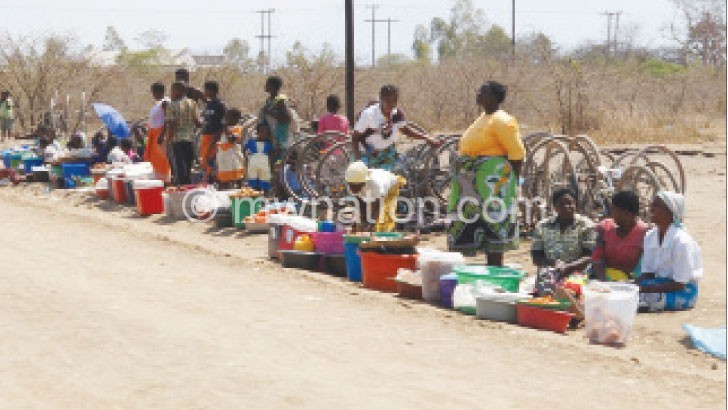Economy depressed—MCCCI
The Malawi Confederation of Chambers of Commerce and Industry (MCCCI) says despite registering a surge in private sector borrowing, majority of the people have been cut-out from earning money, due to a concentration of wealth among the few.
MCCCI chief executive officer Chancellor Kaferapanjira told Business News on Thursday that while private sector credit has been growing in the recent months, there has been little impact on the ground.

“Economy is depressed due to so much concentration of wealth among few people. Even though we have seen improved economic activities due to the infrastructure development, still, majority of the people have been cut out from earning money because government, as a major source of business, has its contracts given to few firms. So, the rest of the people are cut out.
“We know there are a lot of people from the private sector going to borrow but at the same time, as a country, we are importing too much which also limits the impact this has on the ground,” he said.
The Reserve Bank of Malawi (RBM) figures indicate that credit to the private sector continued to grow in the fourth quarter of 2018, a trend which started in the second quarter of 2018.
On an annual basis, private sector credit grew by 11.5 percent at the end of the fourth quarter 2018, from a growth of 8.7 percent at the end of second quarter 2018 and 0.4 percent as at end of fourth quarter 2017.
Quarter-on-quarter, private sector credit increased by 2.1 percent (K9.5 billion) to K456.7 billion compared to growth of 4.4 percent in the preceding quarter decline of 0.4 percent in a corresponding quarter of 2017.
Individual/household loans and foreign currency denominated loans rose by K8.6 billion and K1.0 billion to K127.9 billion and K131.5 billion, respectively. In contrast, the banking system recovered K6.9 billion and K1.1 billion of its outstanding commercial and industrial loans and mortgages in the quarter, respectively.
Meanwhile, commercial banks lowered their provisions for loan losses by K7.8 billion to K21.7 billion as they perceived favourable macroeconomic conditions in the near term.
In terms of distribution by sectors, growth in private sector credit was largely driven by credit to transport, storage and communications, real estate, community, social and personal services sectors which expanded by K5.3 billion, K5.2 billion and K1.3 billion to K24.8 billion, K7.8 billion and K48 billion, respectively.
Meanwhile, credit contractions were recorded in electricity, gas, water, and energy (K8.3 billion), manufacturing (K5.1 billion), Construction (K3.9 billion), financial services (K1.5 billion) and agriculture (K995.5 million).
Earlier, Indigenous Business Association of Malawi (Ibam) president Mike Mlombwa said expectations are high that the monetary policy measures effected by the central bank will translate into more credit to private sector to anchor economic growth.
RBM governor Dalitso Kabambe is on record as having said that the central bank will facilitate increased private sector credit against total domestic credit from an average of 9.6 percent to 16 percent by 2021.





